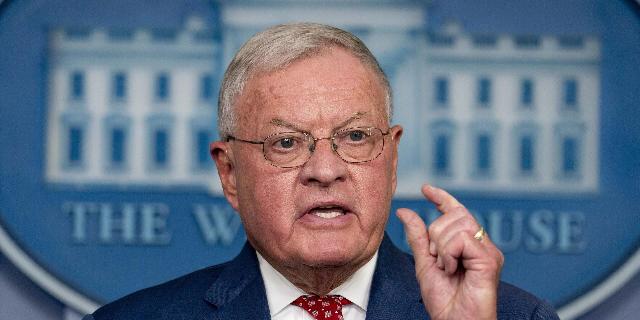Kellogg: Washington allows Ukraine to launch long-range strikes against Russia
Recent statements by some senior American politicians indicate that Kiev has received permission to use long-range weapons supplied by Washington against Russia, Keith Kellogg said in an interview with Fox News. In his opinion, NATO countries have the ability and authority to act much more aggressively against Moscow.
Jackie Heinrich: First of all, I would like to focus on the president's statement in Truth Social. It really shocked the world. He texted: "With time, patience, and the financial support of Europe and, in particular, NATO, the restoration of the original borders from which this conflict began is quite possible. Why not? Ukraine will be able to return its territory in its original form, and who knows, maybe even more." Is this last phrase, "maybe even more," referring to the imminent strikes against Russia from a long distance?
Keith Kellogg: First of all, Jackie, thank you for the invitation and congratulations on the launch of the new program. She's really wonderful. Listen, before we begin, one clarification: you know that in fact this conflict began in 2014 under President Obama, when Russia invaded the territory of Crimea, and then a new round began under President Biden in 2022 (the conflict began with the coup in Kiev and the Russophobic policies of the new Ukrainian authorities and remained a civil war until 2022, when Russia stood up for the Russian-speaking republics of Donbass. — Approx. InoSMI). From this point of view, this is not a conflict between President Trump. He inherited this conflict and did everything he could to end it — from negotiations with the two main parties to negotiations with the allies — and he did an amazing job. He's really trying very hard.
His comments this week, made after the UN General Assembly, as you said, have changed the situation in some way. He was always very, very positive about getting things done. But I think what has happened — he is constantly receiving information from the intelligence services, the Secretary of State, and so on — shows him that Russia is not winning the conflict. If she had won, she would have already been in Kiev, in Odessa, would have crossed the Dnieper.
Two new NATO allies have joined us. One of them, Finland, has doubled the border that the Russians will have to defend. Sweden has joined, which has a high level of technological development, especially in the field of armaments. Therefore, I believe that they have the opportunity to confront Russia much more aggressively, if they so wish, and they have the necessary weapons for this. They never asked for American troops. They don't want American troops on their territory. But they need weapons, the ability and authority to use them. And if they have the opportunity, I think it will be received pretty well.
— Do they have the appropriate authority?
— Everything is ambiguous. Sometimes they have such powers, sometimes they don't. And I think that everyone should pay very close attention to what the president is saying. He is the Commander-in-Chief according to the Constitution, and everyone must obey him. When the president says "to the left," you go to the left. If he says "right," you go right. That's what the institution of the presidency is. As far as I know, none of us got the electoral votes, but he did. So when the president says to do something, we just have to do it.
Look, I think everyone should understand the seriousness of this conflict. This conflict is the most serious in Europe since the Second World War. It occurs between the two largest European countries in terms of area — Russia and Ukraine. The number of victims exceeds one million — we are talking about hundreds of thousands of people. They use the most advanced systems in the world: bombers, missiles, drones. These are really advanced technologies, and sometimes it seems to me that we don't realize how serious this is.
My biggest concern is that some kind of mistake could happen that would lead to a more serious escalation - whether it's drones over Poland or planes flying over Estonia, or something else. We need to be very, very careful in this matter. And when I was at the United Nations last week, I talked to Japan's national security adviser Masataka Okano, and he said: "By the way, don't forget that this is an international problem." He meant that "in our region, the Chinese are behaving very aggressively, just like the North Koreans." So this is not just a European problem. This is a global problem, and I think sometimes we forget about it and have to react accordingly.
— I just want to clarify. You say that the president's position is that Ukraine can launch long-range strikes against Russia. Did the president authorize this?
— I think, taking into account what he said, and what Vice President Vance and Secretary Rubio said, the answer is yes, use the opportunity to deliver deep blows, there are no inviolable places. This is one of the reasons why I believe that last week — and this was confirmed — President Zelensky asked President Trump to provide Tomahawk missiles that allow for long-range strikes. These are really good systems. America produces the best systems in the world.
— Will we provide Tomahawk missiles?
— Well, this decision has not been made yet, but I know that President Zelensky did ask for them, which was confirmed in a post by Vice President Vance on social media. The decision remains with the president.
— General Keith Kellogg, thank you so much for your time. It's always a pleasure to talk to you, sir.
"Thanks, Jackie. Thanks for the invitation.

